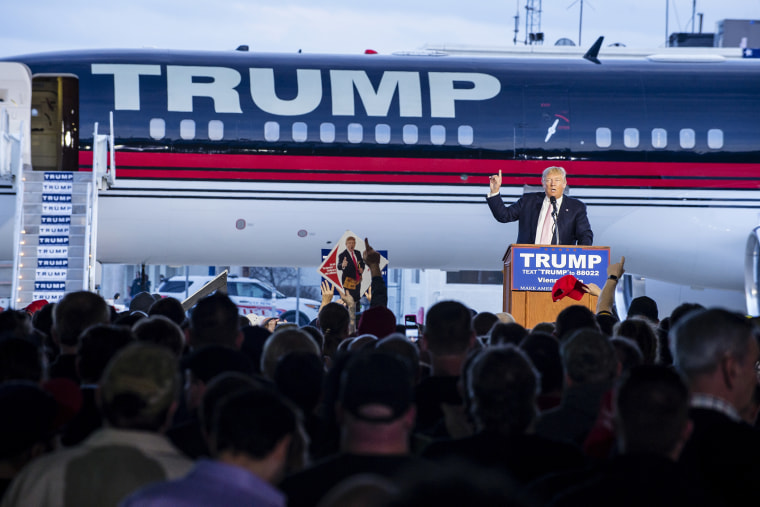In the race for the Republican presidential nomination, the primary/caucus process is playing out for the most obvious of reasons: the party's voters are choosing the person who'll be at the top of the Republicans' 2016 national ticket. A member of the Republican National Committee's Rules Committee, however, said yesterday that voter input is nice, but ultimately irrelevant.
"The media has created the perception that the voters will decide the nomination," RNC member Curly Haugland told CNBC yesterday. He added, "Political parties choose their nominee, not the general public, contrary to popular belief." According to Haugland, there's no real point in even holding primaries and caucuses.
According to this RNC Rules Committee member, even if one candidate -- say, Donald Trump -- crosses the majority threshold and enters the Republican convention with the delegates needed to secure the nomination, the party could still choose to block that candidate anyway.
To be sure, that's never happened, and some Republican officials perceive the existing rules differently. But as MSNBC's Benjy Sarlin noted yesterday, if Trump wins the nominating process, only to be denied the nomination itself, the candidate is already raising the prospect of dire consequences.
Donald Trump warned on Wednesday that his supporters would respond with "riots" if he fails to secure the nomination at July's convention in Cleveland. "I think you'd have riots," Trump told CNN on Wednesday. "I think you'd have riots. I'm representing a tremendous many, many millions of people."
When literal, physical violence became more common at Trump events -- with the candidate himself seemingly encouraging the pugnacious confrontations -- many feared the escalation came with a subtext: this is the kind of violence we might see in Cleveland if Trump and his supporters believe they've been mistreated.
Yesterday, however, the Republican frontrunner turned subtext into, well, text. As former RNC Communications Director Doug Heye put it yesterday, "Some try to limit the language Republicans use by calling their terminology 'dog whistle' rhetoric or 'code words.' With Mr. Trump, there are no such worries."
In fairness, Trump didn't explicitly say he'd cause or incite riots, and in context, his comments may have been more of a prediction than a warning.
Still, Senate Majority Leader Mitch McConnell (R-Ky.) this week said he spoke with Trump and encouraged the presidential candidate to "discourage" violence at his campaign events. As of yesterday, it appears Trump is ignoring the suggestion.
Sean Spicer, the RNC's chief strategist and spokesman, was asked about Trump's "riot" comments yesterday, and replied, "I assume he's speaking figuratively."
Perhaps, though in the same CNN appearance yesterday, Trump added, "I think bad things would happen, I really do. I believe that. I wouldn't lead it but I think bad things would happen." The Republican frontrunner didn't elaborate on what "bad things" might include, though it came on the heels of his rhetoric about "riots."
As Benjy Sarlin explained, "In that context, the message to Republicans was clear on Wednesday: Nice convention you got there, shame if something happened to it."
